+ Patron Michelle Müntefering, Minister of State for International Cultural Policy at the Federal Foreign Office, opens this year's virtual award ceremony on November 26th 2020.
+ 112 applicants for Europe’s most advanced cultural prize from Germany, Austria, Switzerland, France, Sweden, Finland, Denmark, Lithuania, Belgium, Norway, Italy, England, Portugal, Ukraine, and the Netherlands.
+ Leoluca Orlando, Mayor of Palermo receives a Lifetime Achievement Award in the category "European Cultural Manager of the Year" for his cultural initiatives against the Mafia, against racism and for his refugee policy
The shortlist of the European Cultural Brand Awards 2020 is complete. A 42-strong jury of experts from the fields of culture, business and media selected 25 nominees on September 25, 2020 in the climate city of Potsdam under the moderation of Jury President Dr. Hagen W. Lippe-Weißenfeld. The competition for innovative cultural management, trend-setting cultural marketing and sustainable cultural promotion, which was launched in 2006 by the cultural manager Hans-Conrad Walter, is now considered Europe's most advanced cultural prize and honours forward-looking cultural projects in a total of eight competition categories. The award ceremony will take place as the "Night of Cultural Brands" gala on 26 November 2020, this year as a digital event LIVE from the Nikolaisaal Potsdam. The awards will be presented to trendsetting cultural providers, sustainable investments in cultural projects, innovative educational programs, urban culture and cultural tourism regions, and the most committed cultural managers from Europe. The virtual award ceremony will be opened by the patroness Michelle Müntefering, Minister of State for International Cultural Policy at the Federal Foreign Office. www.cultural-brands.com
And these are the nominations of the jury:
European Cultural Brand of the year 2020
|
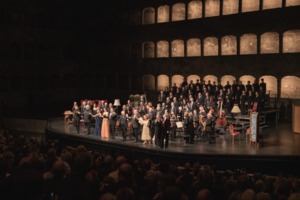
|
|
Mozarteum Foundation Salzburg
The Mozartwoche, the world's best Mozart festival, has been delighting Mozart friends from all over the world for 64 years in January in Salzburg. After Rolando Villazón took over the directorship in 2018 and his approach of playing only Mozart as well as opening up new offers and innovative approaches to Mozart, the Mozart Week today inspires more viewers than ever before. A clear program promise, a consistent brand identity and a sustained success story predestine the Mozart Week to be awarded the title of European Culture Brand of the Year 2020.
|
|
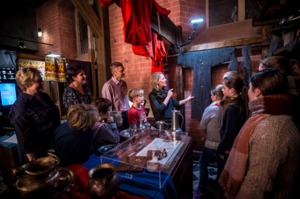
|
|
European Hanseatic Museum Lübeck
The European Hanseatic Museum Lübeck as a young museum in a place rich in tradition, the EHM merges a modern museum complex with the Lübeck Castle Monastery to become the first address for Hanseatic history worldwide. With the "Research Centre for the History of the Hanseatic League and the Baltic Sea Region", the EHM illustrates the latest findings of Hanseatic research and also deals with current issues of trade and economy. With plenty of space for events, the EHM is an exciting place to reflect on the future and the past.
|
|

|
|
European Union Youth Orchestra
Flagship, Innovator and Value Ambassador for Europe - The European Union Youth Orchestra aims to reflect the highest ideals of the EU in a cultural organisation of and for young people. Its 7 core brand values are: youthfulness of spirit, working together, cultural ambassadorship, unity in diversity, excellence, innovation & sustainability. For 44 years it has been the EU’s most tangible cultural ambassador showing what young people can achieve together. Perhaps the EU’s greatest metaphor.
|
European Trend Brand of the year 2020
|
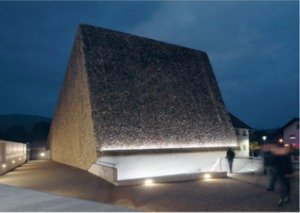
|
|
Concert House Blaibach of the Kulturwald gGmbh
Meteorite of high culture - A village on the edge of the republic, far away from any big city: Blaibach in the Bavarian Forest is different, however, and that has a lot to do with architecture. When the village center threatened to become deserted, baritone Thomas E. Bauer and Munich architect Peter Haimerl initiated several projects that were intended to convey a sense of new beginnings. They dared to make perhaps the most radical investment in Blaibach's future and built a concert hall for 200 visitors in 2014. In the meantime, the house has received many awards and is adorned with the latest €1.45 stamp of the German government. The BKM has proclaimed it a "Place of the Future" and prominent artists of classical music will perform there.
|
|
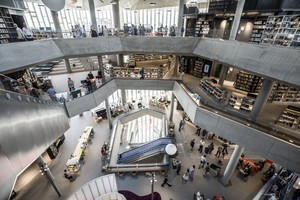
|
|
Deichman Bjørvika Oslo
Oslo's new main library is located in Bjørvika near the city's iconic Opera House. It is a modern and dynamic library that contains not only Deichman's extensive book collections, but also a movie theatre, media workshops, gaming zones, lounges and a restaurant - among other things. One of Norway's most important cultural institutions is no longer just a public library, it is a cultural destination. In order to be attractive in competition with other cultural destinations, Deichman had to adapt to modern branding requirements. How to go from being a traditional public library to becoming an appealing cultural destination?
|
|
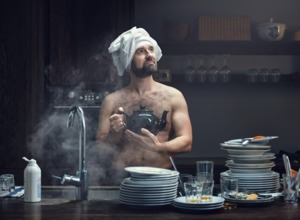
|
|
Royal Danish Theatre
With the subscription service Sceneskift, the Royal Danish Theatre wishes to change how theatre is experienced. In the branding of Sceneskift, the focus has been on showing a more modern and urban side of the theatre that would disapprove the young adults’ prejudices. By providing the young generation with a new way to visit the theatre that fits with how they usually find cultural entertainment, the Royal Danish Theatre aims to provide the future generation with a diverse cultural life.
|
European Cultural Manager of the year 2020
|
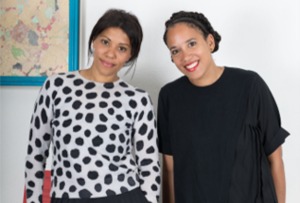
|
|
Yvette Mutumba & Julia Grosse
Founded by Yvette Mutumba and Julia Grosse, the platforms Contemporary And Magazine (C&) (2013) and Contemporary And América Latina (C& AL) (2018) are unique in their design of on- and offline projects. The two Afro-German art historians Yvette Mutumba and Julia Grosse succeed in making highly complex contents of contemporary art productions from Africa, South America and its global diaspora accessible through local writers*. C& is a pioneering global brand with readers* in 170 countries.
|
|
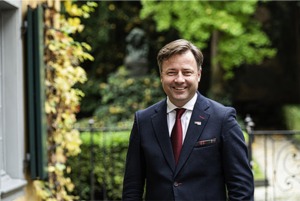
|
Malte Boecker
Since 2012 Malte Boecker has been director and managing director of the Beethoven-Haus Bonn Association. Under his leadership, the Friends of the Beethoven-Haus was implemented, additional donations and grants totaling 12.8 million euros were raised, the Beethoven-Haus was recognized as an affiliated institute of the Friedrich-Wilhelms-University, the public exhibition BEETHOVEN Welt.Bürger.Musik was realized, the presidents and directors of the chamber music festivals Tabea Zimmermann and Daniel Hope were won over, and the conceptual and organizational preparation and realization of the Beethoven Anniversary was carried out. Within eight years, Malte Boecker has fundamentally transformed the Beethoven-Haus, an institution rich in tradition and part of the European cultural heritage, giving it an international orientation and making it fit for the future.
|
|

|
|
Eike Schmidt
The art historian Eike Schmidt, born in 1968 in Freiburg im Breisgau, has been the director of the Uffizi Gallery in Florence since 2015. He studied modern and medieval art at the University of Heidelberg. For his dissertation he spent several years in the 1990s in Bologna and Florence, where he researched the Medici ivory collection in the 16th and 17th centuries. From 1994 to 2001 he worked at the German Art History Institute in Florence. Eike Schmidt then worked in American museums until 2015: 2001 to 2006 at the National Gallery of Art in Washington, 2006 to 2008 at the Getty Museum in Los Angeles, 2009 to 2015 at the Minneapolis Institute of Arts. In 2008/09 Schmidt headed the department of European sculpture at Sotheby's, London.
|
|
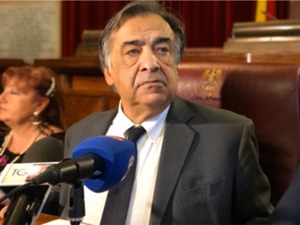
|
|
Leoluca Orlando
The Mayor of Palermo and member of the Sicilian, Italian and European Parliament, receives the Lifetime Achievement Award for his work as a politician, but also as a cultural manager, who with bold cultural initiatives defies the Mafia and racism. As a source of inspiration, he has initiated a renaissance of urban culture in Palermo with unique urban projects and initiated ambitious programs to save the run-down quarters. Orlando has played a major role in the rebirth of the Cita di bella arti, the Italian cultural capital and safe haven for migrants. In the category "European Cultural Managerof the Year 2020" he is honored with a Lifetime Achievement Award.
|
European Cultural Investor of the year 2020
|
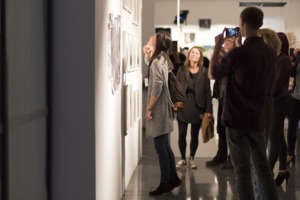
|
|
Wilo Foundation
In line with its regional responsibility, the Wilo Foundation supports the classical music sector, which has been so badly affected by the Corona crisis. It initiated an emergency aid, a fast financial support for musicians and promoted ensembles that play music in Dortmund. In addition, it stood by the side of its local cultural sponsorship partners and supported them in developing new digital ways such as live stream and online concerts as well as innovative videos and digital performances.
|
|
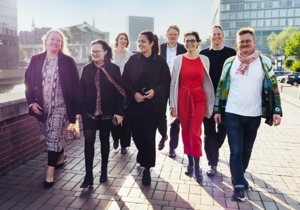
|
|
Olympus / recommended
In cooperation with the Haus der Photographie/ Deichtorhallen Hamburg, Foam Fotogafiemuseum Amsterdam and Fotografie Forum Frankfurt, Olympus has successfully implemented the "recommended" scholarship for artistic photographers for the second time as a unique funding project 2020. Through the merger of the four European partners, the support is particularly effective: the scholarship holders receive one year of personal coaching by the curators, financial support and equipment, as well as three exhibitions of their created works in the renowned houses.
|
|
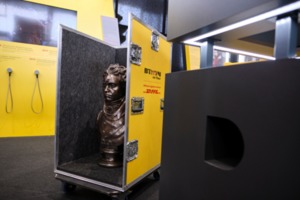
|
|
Deutsche Post DHL Group / BTHVN on Tour
To arouse worldwide curiosity about the Beethoven Year, Deutsche Post DHL Group, together with its long-standing partner Beethoven-Haus Bonn, has developed the interactive, multimedia traveling exhibition "BTHVN on Tour", which provides insights into the life and work of the composer. Since 2019, the exhibition has already toured concert halls in Europe and the U.S., where it was accessible to everyone free of charge during the day. Due to Corona, the exhibition can currently be visited virtually.
|
European Education Program of the year 2020
|
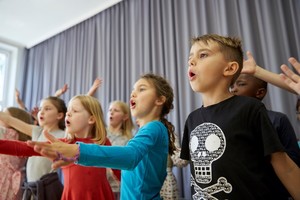
|
|
JeKits Foundation
"JeKits - Every Child Instruments, Dancing, Singing" gives children access to music and dance and enables them to gain their own artistic and aesthetic experiences. The focus is on making music or dancing together from the very beginning. JeKits is the largest program for cultural education in North Rhine-Westphalia. Currently, around 78,500 students* participate in over 1,000 elementary and special schools. JeKits reaches all children, regardless of their origin and socio-economic background, and provides impulses for municipal educational landscapes.
|
|
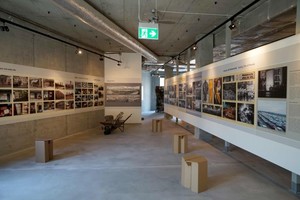
|
|
Berlin Wall Exhibition
The Wall belongs to Berlin like the Eiffel Tower belongs to Paris. Where was the Wall? This is the most frequently asked question by Berlin visitors* and young Berliners*. The museum DIE MAUER | THE WALL was founded at Leipziger Platz 11, in the middle of Berlin and at a place steeped in history. The history of the Berlin Wall from 1961 to 1989 is told like a biography. With large-format pictures, little but concise text. In addition, the exhibition corrects seven myths and legends of the Cold War with exciting exhibits.
|
|
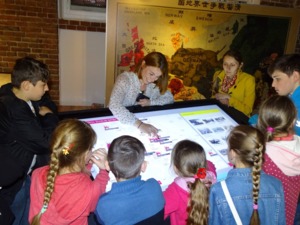
|
|
Center for Urban History Lviv
Could history be a space for inclusiveness? The grand narratives of 20th-century history set a conventional approach to our understanding of the past. However, it often excludes from the conversation, leaving the gaps. City and culture, being in the focus of the Center of Urban History, offers a framework to include into this conversation unheard voices, highlights what is obscure, thus broadens our perspective. Educational activities as an approach help us to build such a space of inclusiveness around discussions on the history of the 20th century.
|
European Cultural Tourism Region of the year 2020
|
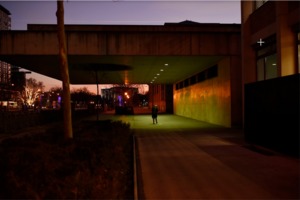
|
|
Where About Now / Portugal
Due to the impact of the COVID-19 pandemic on the tourism and creative world, the art travel platform Where About Now - Travel Experiences Guided by Art is increasingly dealing with rural cultural travel regions and art at decentralized locations. Countrysiding Portugal - Digital & Analog Art Journey is an interactive art guide for creative places with a connection to nature in Portugal. The scrollytelling format initially allows a digital experience of text, images and cartography of the destination, but aims at inviting real exploration.
|
|
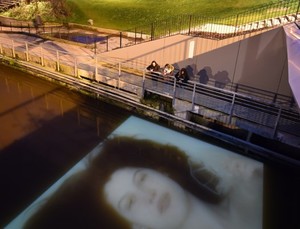
|
|
Le Voyage a Nantes
Visionary and creative, Nantes is today France’s six largest city and has been transformed in the last 30 years probably more than any other city in France, to become one of the most attractive metropolis of Western Europe. In Nantes, culture and art are contributing factors of cohesion, and creativity a tool for economic leverage. It does not only make inhabitants proud of their city, but make them feel actors of all changes, and ambassadors of Nantes’ spirit. And when it comes to culture, Nantes is among the first in France in terms of budget spending. The historical capital of Brittany also hosts an increasing number of artists, and theatre troops like the world famous Royal de Luxe.
|
|
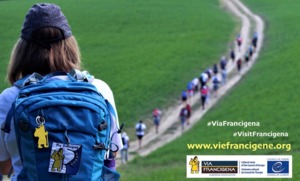
|
|
Via Francigena
Via Francigena – transborder tourism product and the cultural route of slow tourism and sustainable development. The ancient route that in medieval times connected Canterbury to Rome and to the harbours of Apulia has been rediscovered by modern wayfarers, who set off on a surprising and enchanting route. Since 2001 the European Association of the Via Francigena Ways coordinates the development and promotion of a long-distance walking itinerary that runs across Europe, retracing the history of our continent and proposing a different way of travelling.
|
European Prize for Urban Culture 2020
|
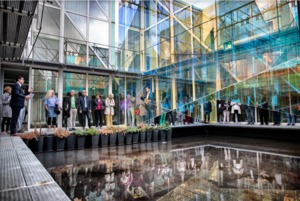
|
|
Monheimer Kulturwerke
The Monheimer Kulturwerke GmbH is the still young 100% subsidiary of the city of Monheim am Rhein, which acts as a motor for the areas of culture, tourism and customs in the urban development. Coupled with the city's binding goals, the Kulturwerke promote and connect local structures, involve the citizens in the design process and create a bridge between everyday, social and high culture. With the conversion of the historic barrel filling hall into the multifunctional multi-purpose building "Kulturraffinerie K714", the Monheimer Kulturwerke are creating an identification space and a visiting card of the city for the diverse city society with an exemplary character.
|
|
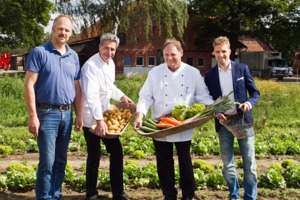
|
|
Celle Tourism & Marketing
Celle is one of the most beautiful half-timbered towns in Germany. But few people know that Celle is in the league of Weimar and Dessau when it comes to Bauhaus architecture. Celle owes this architectural significance to the architect Otto Haesler, who perfected social housing construction from Celle during the Weimar Republic. On the occasion of the 100th anniversary of the Bauhaus in 2019, this "treasure" was lifted and processed under the motto "Baroque meets Bauhaus" to create an identity.
|
|
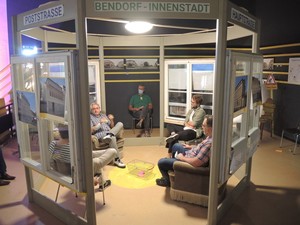
|
|
City of Bendorf - Cinema of Ideas
Bendorf is a city in upheaval. In a process with citizens, administration, politics & specialized planners far more developed during the preparation to an application for a national horticultural show: The IDEENKINO, the FUTURE WORKSHOP BENDORFS. In the middle of the center, in the old cinema, in the city center threatened by vacancies. This is where people think, try out and negotiate how they would like to live together here in the future through joint commitment and theme-related workshops with actors.
|
European Prize for Sustainability in the Cultural Market 2020
|
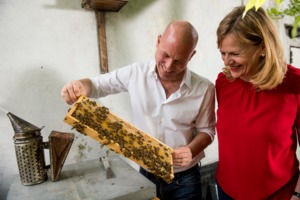
|
|
KUNST HAUS WIEN
The Kunst Haus Wien is committed to cultural sustainability in its program and socio-political commitment, both locally and internationally. The museum also chooses the exhibition and communication topics accordingly, both in terms of content and in its operations. KUNST HAUS WIEN is the first Green Museum to be awarded the Austrian Ecolabel, which is an example of how museums can make environmental issues and ecology accessible to a broad public and thus contribute to raising awareness.
|
|
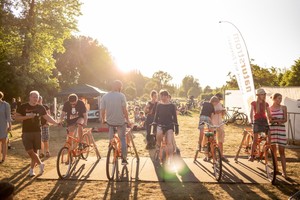
|
|
FUTUR 2 FESTIVAL
The Futur 2 Festival proves that culture, sustainability and ecstasy go well together. Because: the festival is designed to be energy self-sufficient. On two stages - one powered by muscle power, the other by solar energy - numerous artists inspire the audience with live music and DJ sets. The energy, waste (avoidance) and recycling concept, the sanitary facilities and the gastronomy offer are also designed under the premise of limited resources.
|
|
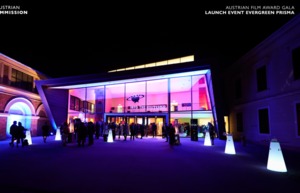
|
|
Lower Austrian Film Commission – LAFC / EVERGREEN PRISMA
The EVERGREEN PRISMA, the Green Filming Initiative of the Lower Austrian Film Commission for sustainable filmmaking as a forward-looking contribution to more ecological, economic and social responsibility, aims to enable and encourage a shift in the film industry towards CO2-neutral productions. The combination of a digital platform, a practice-oriented education program and cross-national networking is the initiative's comprehensive set of instruments.
|